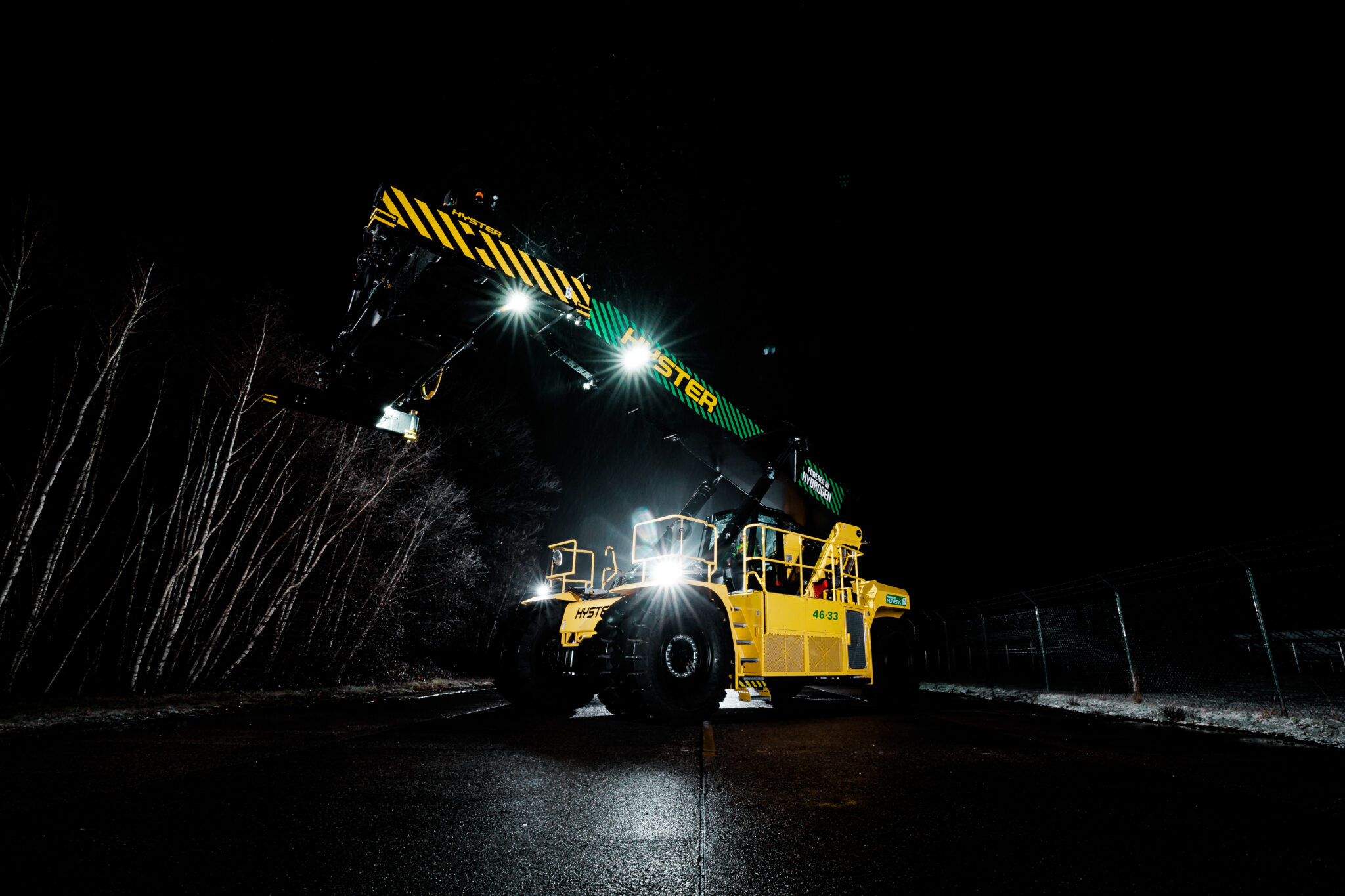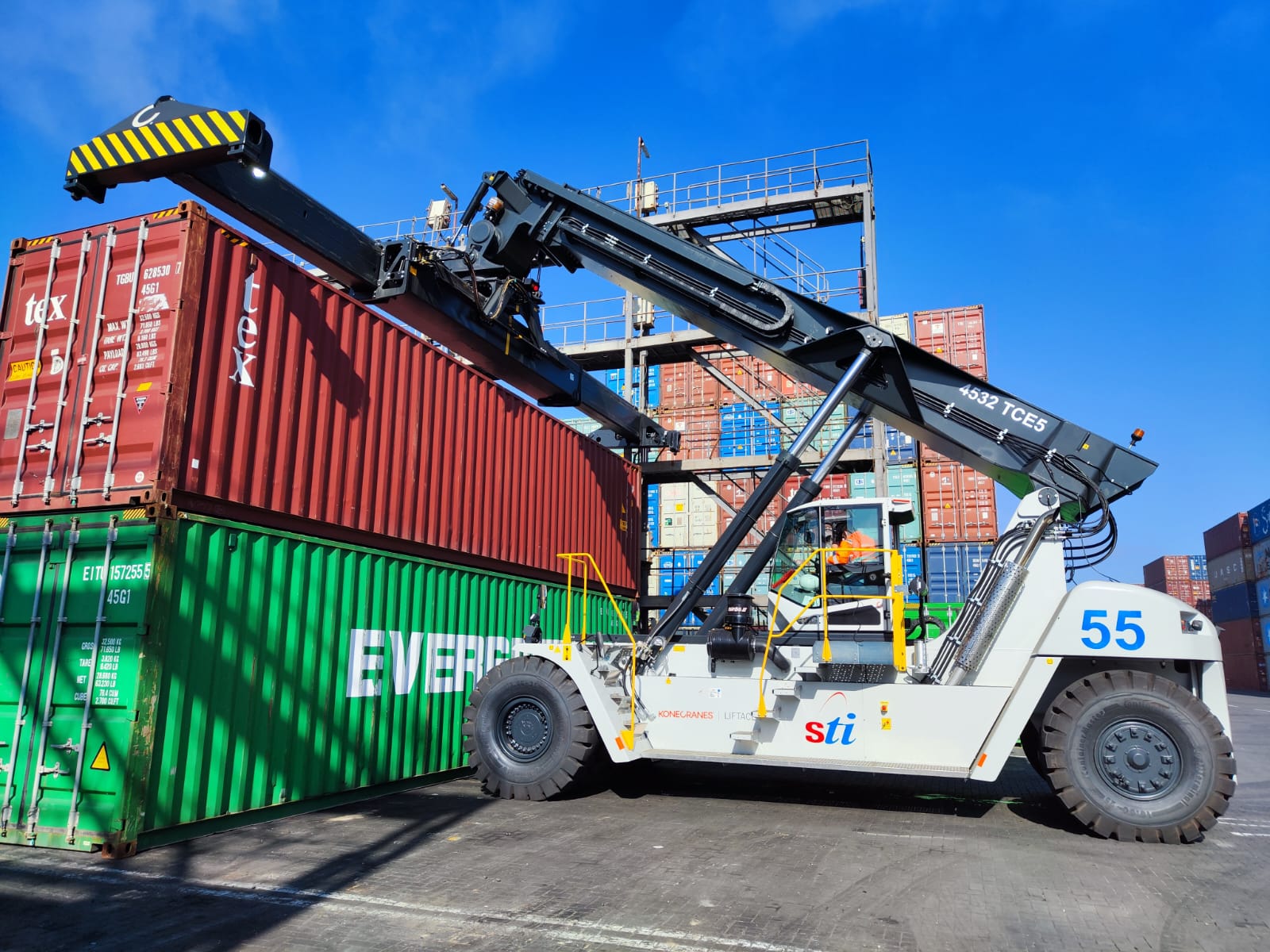At TOC Europe 2023, Hyster will discuss solutions for port equipment electrification, giving visitors a first glimpse of the zero-emission terminal tractor Hyster is developing with Capacity Trucks at stand C11. The company will also be on hand to share updates on its hydrogen and lithium-ion powered Container Handlers.
“We are delighted to be back at TOC Europe to share our latest innovations that bring advanced power sources to port equipment and help support businesses with their zero-emission strategies,” says Jan-Willem van den Brand, Director Global Market Development at Hyster. “For us, bringing ‘Clean Power that Means Business’ to ports is about understanding the whole application, and its challenges, to provide solutions that support sustainability goals and also meet performance and productivity needs of the operation.”
Visitors to stand C11 will see a preview of the technologies that Hyster is developing with yard truck brand Capacity to provide its first zero-emissions terminal tractor for use in Europe to Hamburger Hafen und Logistik AG (HHLA). The machine will be powered by Nuvera hydrogen fuel cells and run on hydrogen fuel produced locally at the HHLA Hamburg Green Hydrogen Hub.
Electrifying Higher-Capacity Port Equipment
This zero-emissions solution is just the latest in a series of developments where Hyster is at the forefront of electrifying higher-capacity port equipment that has traditionally relied on internal combustion engine (ICE) power. The company is currently testing the first-ever, real-world pilot of a hydrogen fuel cell-powered container handler at the Port of Los Angeles. This project was also recently recognised as a finalist for the World Hydrogen Awards 2023.
In addition, Hyster is developing an Empty Container Handler powered by hydrogen fuel cells for HHLA in Hamburg, Germany and previously announced a pilot of a fuel-cell powered ReachStacker at the Port of Valencia as part of the European Horizon 2020 programme and H2Ports project. Furthermore, Hyster recently revealed that it will provide with CARU Containers B.V. with a 100% battery-powered Hyster Empty Container Handler for use in a depot in Rotterdam, the Netherlands. The electric empty container handler will be powered by 650-volt lithium-ion batteries, with electricity sourced from solar panels on site at the CARU depot.
“Electrification is not just about buying a battery powered truck, there are also considerations that must be made around infrastructure,” says van den Brand. “For instance, we know how important standardised charging is for ports that are aiming to switch to a completely electric fleet, so the Hyster equipment we are developing aims to feature CCS (Common Charging System) capability across the range. This could help make the transition to zero-emission equipment easier, while supporting scheduled and opportunity charging in operations.”
Robotic Charging
Hyster is also helping customers explore the possibilities of robotic charging for electric trucks, and will share an example of an autonomous charging system on the Hyster stand at TOC Europe.
“We are developing the new Terminal Tractor to be ready for autonomous charging, so those choosing that route can do so easily and quickly,” says van den Brand. “However, this is just one example of how we are working with partners and championing new technologies to provide solutions that simplify the transition to electrification in ports and terminals.”
The development of hydrogen and lithium-ion powered equipment is moving ports closer to total electrification, which could help operations to reduce emissions, fuel consumption, and maintenance costs without compromising performance. However, to support a wide range of businesses on their journey towards electrification, Hyster lift trucks can also now utilise HVO 100 (Hydrotreated Vegetable Oil) as a fuel source to help reduce emissions. This may provide a stop-gap solution that reduces greenhouse gas emissions, meets Tier III, Tier IV, and Stage V emissions regulations, and can be applied to both new Hyster trucks and those already in the field.
“We know that every port and terminal is different, so we encourage attendees at TOC Europe to come to the Hyster stand to discuss their particular application needs, and learn why partnering with Hyster may help them identify the zero-emissions equipment solutions that they need,” concludes van den Brand.




